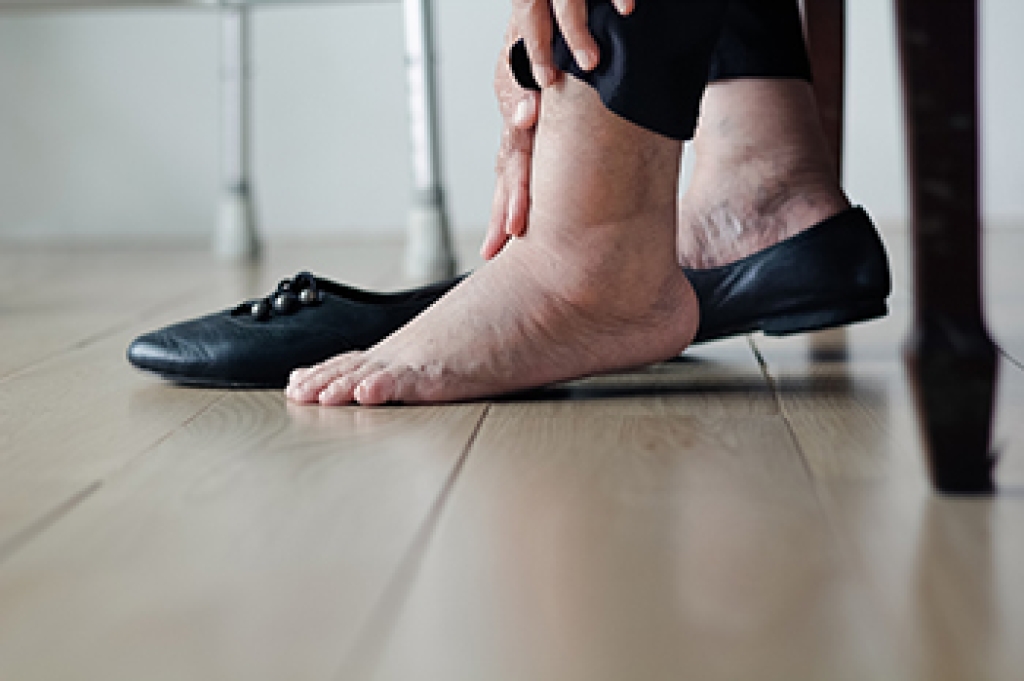
Swelling in the ankles, feet, and lower legs often affects people as they enter their senior years. Termed edema, this swelling can put you at a higher risk of falling and affect your normal daily activities. Caused by retention of fluids, edema also can be a sign of other conditions. Among these are heart problems, kidney disease, and rheumatoid arthritis. Swelling also may be the result of a sedentary lifestyle. Some ways to lessen the swelling are wearing compression socks, keeping the feet elevated, drinking more fluids, and limiting foods with high salt content. An increase of foods that are rich in magnesium is encouraged. There are also a number of exercises that can help, but it is not a good idea to start any exercises before knowing the cause of the edema. If you notice swelling in the lower extremities, it is important to see a podiatrist for an exam, diagnosis, and treatment plan, which may include a safe program of exercises.
Swollen feet can be a sign of an underlying condition. If you have any concerns, contact Daniel Bell, DPM of Florida. Our doctor can provide the care you need to keep you pain-free and on your feet.
Swollen feet are a common ailment among pregnant women and people who stand or sit for extended periods. Aging may increase the possibility of swollen feet and patients who are obese often notice when their feet are swelling too. There may be medical reasons why swollen feet occur:
- Phlebitis - A condition that causes the veins to become inflamed and can also cause leg pain.
- Liver disease - This may lead to low blood levels of albumin which is a protein. This can cause fluid in the blood to pass into the tissues and several areas of the body can become swollen.
- Heart failure - When the heart doesn’t pump properly the blood that is normally pumped back to the heart can pool in the veins of the legs causing swollen feet.
- Kidney disease - One of the main functions of the kidneys is releasing excess fluid in the body. This type of condition can make it difficult for the kidneys to function properly, and as a result the feet may become swollen.
- Deep-vein thrombosis (DVT)- This is a serious condition where blood clots form in the veins of the legs. They can block the return of blood from the legs to the heart which may cause the feet to swell. It is important to be treated by a podiatrist if this condition is present.
Swollen feet can also be caused by bone and tendon conditions, including fractures, arthritis, and tendinitis. Additionally, there may be skin and toenail conditions and an infection may cause the feet to swell. Patients who take medicine to treat high blood pressure may be prone to getting swollen feet.
Many patients elevate their feet to help relieve the swelling and this is generally a temporary remedy. When a podiatrist is consulted the reason behind the swelling can be uncovered and subsequently treated.
If you have any questions please feel free to contact our office located in Pembroke Pines and Plantation, FL . We offer the newest diagnostic tools and technology to treat your foot and ankle needs.
